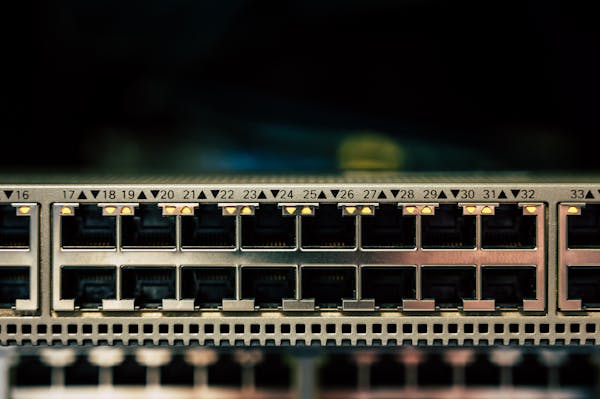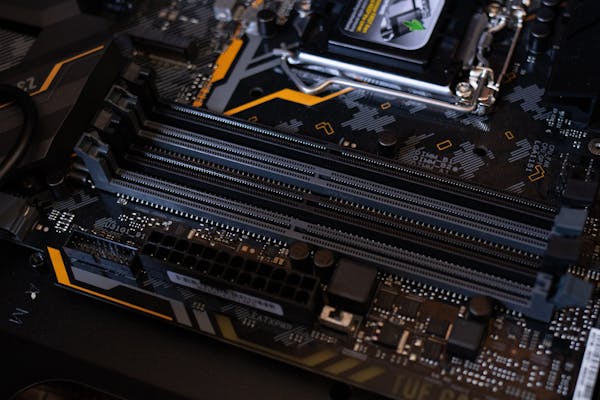Source article: Network security

Delving into 4G Rotating Proxies
With the increasing need for online anonymity, mobile 4G proxies have become essential for maintaining online privacy.
What Are 4G Rotating Proxies?
These proxies leverage mobile networks to assign dynamic IP addresses to users. Unlike static proxies, they change IP addresses periodically, enhancing anonymity.
How Do They Work?
Upon activation, the proxy server assigns a mobile IP. These IPs change after specific durations or actions, hindering surveillance.
Why Opt for 4G Rotating Proxies
- Improved Privacy: Dynamic IP rotation prevents tracking.
- Accessing Region-Locked Content: Changing IPs facilitate unrestricted browsing.
- Lowered Detection Rates: Frequent IP changes prevent bans.
Use Cases for Mobile Proxies
- Web Scraping: Rotating IPs prevent scraping blocks.proxies reduce account bans.
- Ad Verification: Changing IPs simulate diverse user locations.
- o Consider}
Before selecting a provider, consider:
- Diversity of IP Addresses: A larger pool reduces repetition.
- Switching Mechanisms: Determine if the service offers customizable intervals.
- Location Options: Access to multiple regions supports diverse tasks.
Potential Challenges
- Cost Implications: 4G proxies may be pricier compared to other types.
- Performance Issues: Mobile networks might experience fluctuations.
- Compliance Issues: Ensure usage avoids illicit activities.
Conclusion
4G rotating proxies provide dynamic IP solutions, establishing their importance in contemporary online activities.
Understanding the Operational Aspects of 4G Rotating Proxies
In the realm of internet privacy, mobile 4G proxies have become essential components for bypassing geo-restrictions.
What Are 4G Rotating Proxies?
These proxies utilize cellular data connections to rotate IP addresses to users. Unlike static proxies, they offer dynamic IP rotation, reducing detection risks.
How Do They Work?
Upon connection, users receive a 4G network IP. These IPs change after specific durations or actions, hindering surveillance.
Advantages of 4G Rotating Proxies
- Increased Security: Dynamic IP rotation masks real IP addresses.
- Bypassing Geo-Restrictions: Changing IPs facilitate unrestricted browsing.
- Reduced IP Bans: Frequent IP changes circumvent anti-bot measures.
Applications of 4G Rotating Proxies
- Web Scraping: Rotating IPs ensure continuous data collection.
- Social Media Management: Dynamic proxies reduce account bans.
- Ad Verification: Changing IPs validate ad placements.
Choosing the Right Proxy Service
When opting for a 4G rotating proxy, consider:
- IP Pool Size: A larger pool offers better rotation.
- Rotation Frequency: Determine if the service offers customizable intervals.
- Regional Availability: Access to multiple regions supports diverse tasks.
Potential Challenges
- Budget Concerns: 4G proxies often have higher costs compared to other types.
- Network Reliability: Mobile networks may affect consistency.
- Regulatory Concerns: Ensure usage aligns with laws.
Conclusion
4G rotating proxies offer unparalleled anonymity, positioning them as essential tools in modern internet usage.
In the modern digital age, maintaining online privacy and bypassing restrictions has become more necessary than ever. Businesses, marketers, and developers often turn to proxy servers to simulate different locations. Among these, 4G rotating proxies have become game-changers.
What makes them better or worse than other alternatives like residential proxies? Let’s dive deep.
== What is a 4G Rotating Proxy?
A 4G rotating proxy is a proxy that relays requests through real mobile networks. These proxies change IPs at custom timeframes or upon request, mimicking human behavior and eliminating the risk of bans or blocks.
== Main Proxy Types
Let’s summarize the key proxy types before comparing:
1. **Datacenter Proxies**
– Fast and affordable, but easily detectable.
2. **Residential Proxies**
– Use IPs assigned to real homes. More legit, but slower and costlier.
3. **4G Mobile Proxies**
– Use real SIMs on LTE networks. Ideal for automation and stealth.
4. **SOCKS5 Proxies**
– Protocol-based, flexible, used for various apps, not just HTTP.
== Comparison Table
| Feature | 4G Rotating Proxies | Datacenter Proxies | Residential Proxies | SOCKS5 Proxies |
|————————|———————|———————|———————|—————-|
| IP Source | Mobile Network (SIM)| Data Centers | Home IPs | Varies |
| Rotation | Yes (Frequent) | Sometimes | Optional | Manual |
| Ban Resistance | High | Low | Medium | Depends |
| Speed | Medium | High | Low-Medium | High |
| Price | High | Low | Medium | Low-Medium |
| Target Use | Social, Ads, Bots | General Scraping | E-commerce, Research| General |
| Block Detection | Low | High | Medium | Medium |
== Technical Advantages of 4G Rotating Proxies
Why are 4G proxies so powerful?
– **Real Device Trust**: Websites trust mobile IPs more than others due to carrier NAT and wide user pools.
– **Shared Reputation**: IPs are shared across many users, making banning a single user risky.
– **Geo-targeted Mobile Carriers**: Rotate between networks in real U.S. cities or countries.
– **Dynamic Rotation**: Can rotate every few minutes or after each request.
– **Bypasses Captchas**: Mobile IPs are less likely to trigger captchas or challenge verifications.
== Where 4G Proxies Win
Let’s cut to the chase— if you’re doing social media automation, nothing works better than a solid 4G proxy.
– Craigslist blocks data center IPs.
– Web scraping? You’ll face fewer issues.
– Ads management across banned zones? Done.
== Where They Fall Short
– **Cost**: They’re premium priced.
– **Speed**: Slower than static datacenter options.
– **Limited Threads**: Some providers limit concurrent usage.
== SOCKS5 vs 4G: Protocol vs Behavior
If you need raw protocol-level control, SOCKS5 is your friend. But they don’t rotate IPs on their own.

| Attribute | 4G Proxy | SOCKS5 Proxy |
|———————|——————–|——————–|
| Protocol Type | HTTP/HTTPS | SOCKS5 (All apps) |
| Rotation | Yes | Manual |
| IP Trust Level | Very High | Medium |
| Use Cases | Social, Ads, Bots | Torrenting, Apps |
== Use Cases Side-by-Side
**4G Rotating Proxies:**
– Social Media Management
– Mobile Ad Verification
– SEO Scraping
– Sneaker Bots / E-com Testing
– Marketplace Automation
**Datacenter Proxies:**
– High-volume scraping (non-sensitive)
– Speed-demanding tasks
– Price-conscious campaigns
**Residential Proxies:**
– E-com price intelligence
– Research tools
– CAPTCHA-heavy targets
**SOCKS5 Proxies:**
– Application-level traffic routing
– Anonymity over torrents
– Bypassing firewalls
== How to Choose the Right One?
Not all proxies are created equal. Here’s how to choose:
– Need speed? Go datacenter.
– Need trust and stealth? Go 4G mobile.
– Need app-level routing? Go SOCKS5.
– Need wide IP pools without rotation? Try residential.
== Future of 4G Rotating Proxies
With AI detection systems growing smarter, only mobile IPs are keeping up. We’re seeing:
– 5G proxy rollouts in testing
– Smarter rotation algorithms
– Integration with automation platforms like Jarvee, NextPost, Puppeteer
== Final Verdict
If you want the closest thing to human, LTE proxies are your best bet. For any campaign that’s running multiple accounts, it’s worth the investment.
== Spintax Conclusion
So, whether you’re an agency scaling campaigns, investing in the right proxy is key to success.
They may feel expensive, but the ROI makes up for it.
https://www.fortinet.com/resources/cyberglossary/proxy-server
https://en.wikipedia.org/wiki/Proxy_server
https://support.microsoft.com/en-us/windows/use-a-proxy-server-in-windows-03096c53-0554-4ffe-b6ab-8b1deee8dae1
https://www.reddit.com/r/explainlikeimfive/comments/1dfgepb/eli5_what_is_a_proxy_server_and_why_would_i_as_an/
https://surfshark.com/blog/proxy-server

CÓ THỂ BẠN QUAN TÂM
2026 Best of the 405 投票ブーストサービス – オクラホマシティであなたのレストランをNo.1に!
Nikmati Keseruan 2026 sebagai Tempat Rekreasi Digital yang Mengasyikkan
Услуга накрутки голосов для Best of the 405 2026 – сделайте так, чтобы ваш ресторан в Оклахома-Сити стал №1!
oyu543 Ultimate Hike Farther, Hurt Less
GIAO DỊCH TRỌN ĐỜI CÙNG HFM
Công nghệ nhựa kháng lửa bền vững cho tương lai an toàn
Menyelami Dunia Fantasy Sports untuk Pengalaman Hiburan Tak Terbatas
Bộ chuyển đổi và lặp tín hiệu RS-232/422/485 ICP DAS